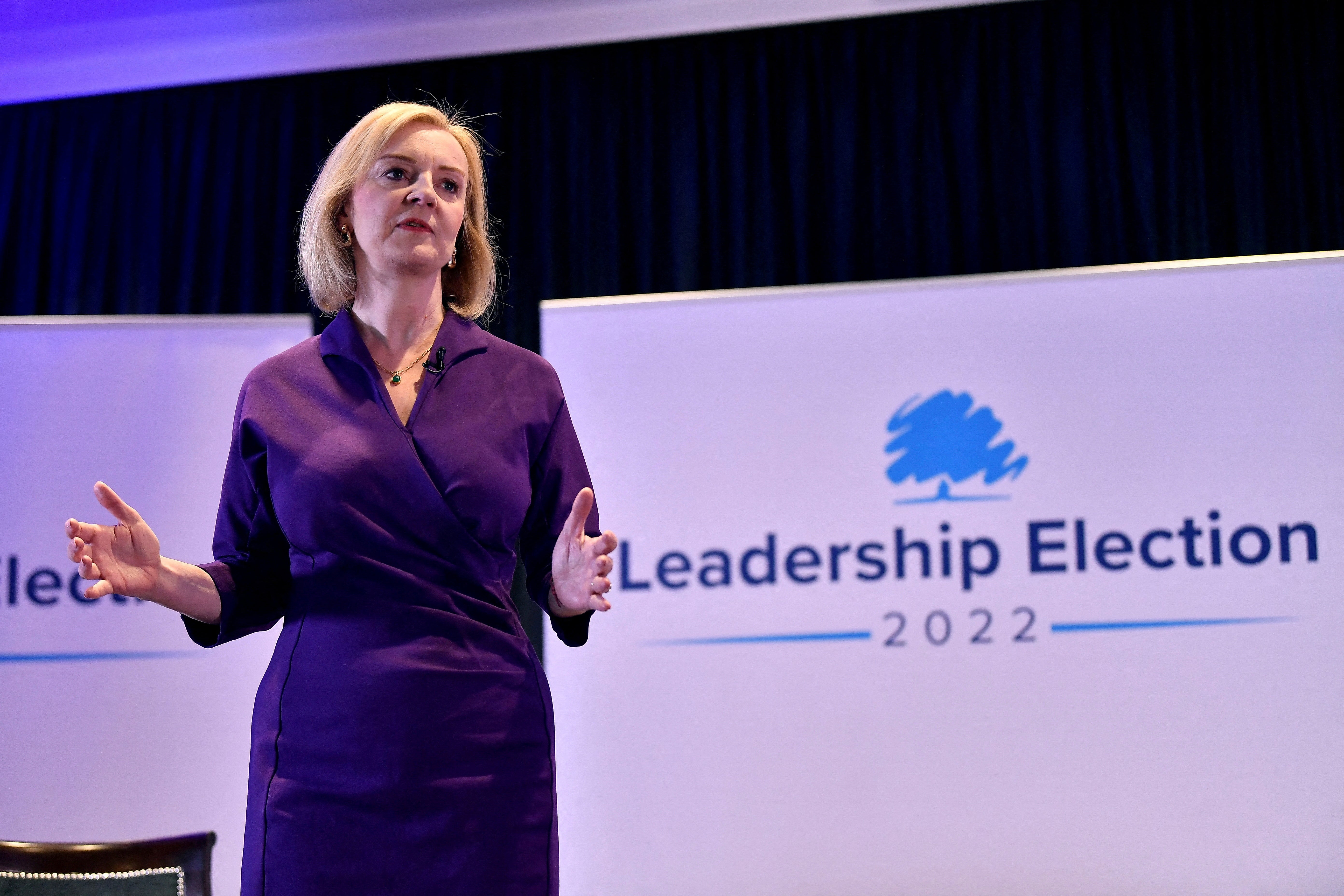Liz Truss is not doing what she promised in her leadership campaign
‘I’m very clear I’m not planning public spending reductions,’ she said. Yet that’s exactly what her government is now planning, writes Andrew Grice


Allies of Liz Truss insist we shouldn’t be surprised: she is implementing what she promised during the Tory leadership campaign and is someone who “does what she says”. There’s only one problem: it’s not true.
In July, Truss assured us she would not return to the austerity of the 2010-15 Tory-led coalition. “I’m very clear I’m not planning public spending reductions, what I am planning is public service reforms,” she said. In other words, Trussonomics is not Osbornomics.
Yet another round of spending cuts is precisely what her government is now planning in a desperate attempt to scramble out of the hole of its own making and calm the financial markets.
There is no mandate for a return to austerity in the Tories’ 2019 manifesto either. Quite the opposite: Boris Johnson wooed the red wall with promises of more hospitals, nurses, doctors and police officers and “millions more invested every week”.
Yet Kwasi Kwarteng’s disastrous mini-Budget has left Truss with no good options. The least bad one is another squeeze on spending. It will have to go much further than our old friend “efficiency savings.” The government is likely to need a fiscal tightening of between £37bn and £47bn for debt to be falling by 2026-27, according to the Resolution Foundation think tank. With tax rises off limits, the spending cuts needed would be about the same as George Osborne announced in 2010. Osbornomics rules after all.
State benefits are in the line of fire. After limiting this year’s rise, Sunak promised they would rise by inflation next April, about 10 per cent. Truss is now preparing to rip that up and raise them in line with earnings, about 6 per cent. The state pension will probably be protected – no surprise, since the Tories’ support is strongest amongst over-65s. However, cutting welfare could prove politically toxic, reinforcing the image of a government that reduces taxes for the rich but doesn’t help the poor during a cost of living crisis.
Whitehall departments, whose budgets will likely be frozen, already need another £18bn as their spending plans are based on 4 per cent inflation. The clampdown will also squeeze public sector pay, risking more industrial action. If history teaches us anything, building projects will be delayed – the lowest-hanging fruit. But halting infrastructure and research and development schemes could reduce the chances of the government achieving 2.5 per cent growth target. Whichever way Truss turns, there are problems.
There’s no guarantee the markets will believe Truss and Kwarteng could deliver the big number on cuts they announce. Many Tory MPs will be squeamish about a return to austerity. Despite her working majority of 71, Truss might struggle to get some of the cuts approved by the Commons. The mood on the Tory backbenches is described by one senior figure as “sulphurous”.
Many of her own MPs think Truss has blown up the Tories’ reputation as the party of fiscal responsibility and home ownership, as higher mortgage payments wipe out the benefit of tax cuts. Strong backing among home-buyers was crucial in the Tories’ capture of the red wall.
Silence is not golden for Truss: many Tory MPs, seething in private, are not yet attacking her in public but are not defending her either. This is ominous: the silent treatment was given to Johnson – but after three years as prime minister, not three weeks as with Truss.
The Tory critics are demanding that scrapping the top rate of tax is postponed – and they may well have the numbers to achieve that. To end the drift, they want Kwarteng to announce his medium-term debt reduction plan well before the scheduled date of 23 November. Some Tories want Truss to sack her chancellor but the word in Whitehall is that she was even more gung-ho about his mini-Budget than he was. She can hardly sack herself, even though an awful lot of her MPs would be delighted if she did.
To keep up to speed with all the latest opinions and comment sign up to our free weekly Voices Dispatches newsletter by clicking here
Labour, 33 points ahead in the latest opinion poll, can hardly believe its luck. But perhaps the party deserves it, and there’s some poetic justice in it. After the 2008 financial crisis, the Tories pinned the blame for the UK’s deficit on Labour as they justified their austerity programme. They knew the real cause was a global crisis but their attacks inflicted enormous damage to Labour’s economic credentials; for some voters, the scars remain today.
Now Labour can blame the mayhem in the markets on a tax cut for the rich – another reason why Truss should delay it. Again, there are other factors, including global ones, and abolishing the 45p rate accounts for only £2bn of Truss’ £45bn of tax cuts. Never mind the detail; it’s how it looks that matters. That was Truss’ spectacular misjudgment. For Labour, revenge is sweet.






Join our commenting forum
Join thought-provoking conversations, follow other Independent readers and see their replies
Comments